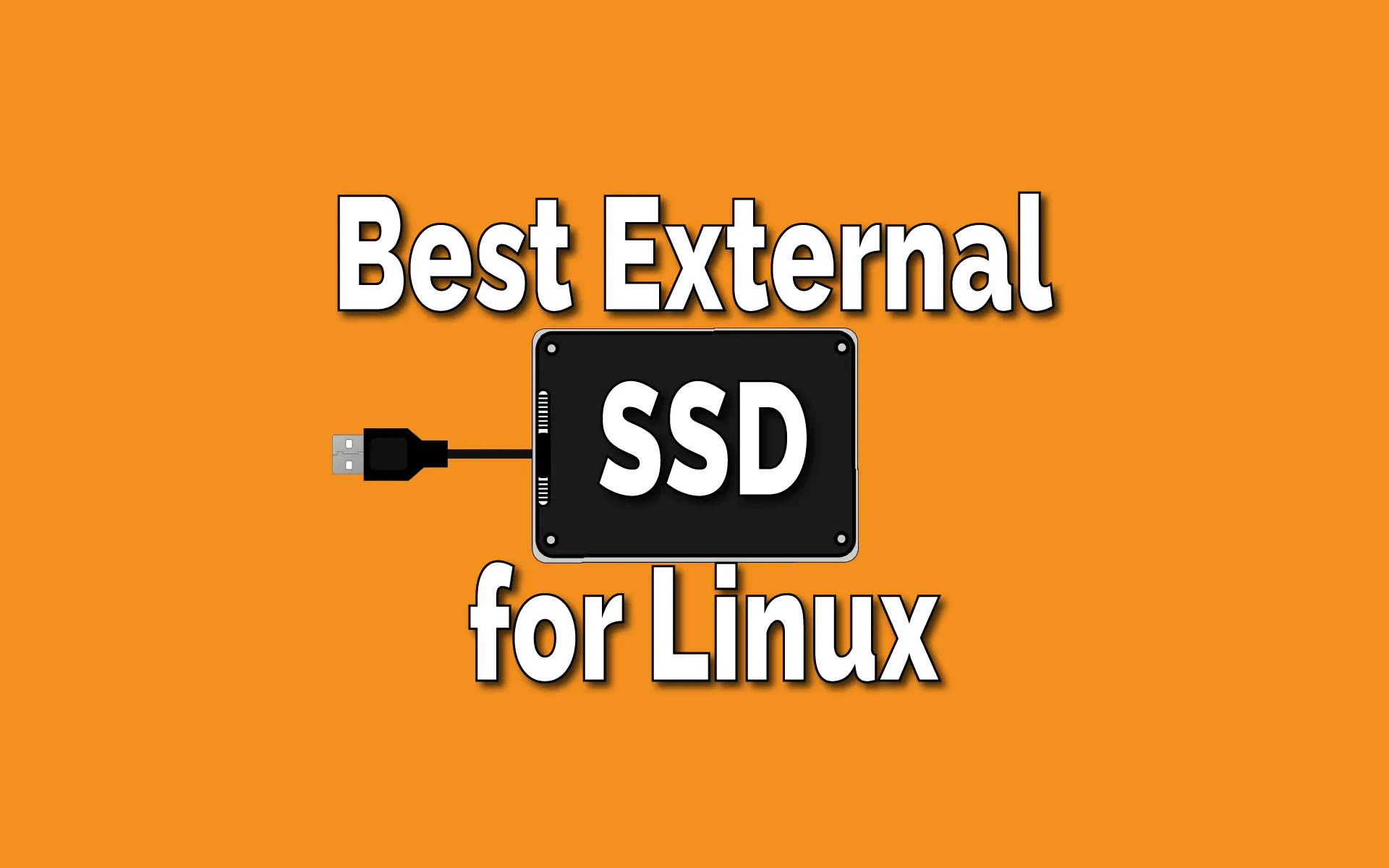This post may contain affiliate links/ads and I may earn a small commission when you click on the links/ads at no additional cost to you. As an Amazon Affiliate, I earn from qualifying purchases. Techsphinx also participates in the StationX Affiliate program. You can read my full disclaimer here.
In my other post, I have mentioned some great external hard drives (HDD) for Linux. However, they have a very slow transfer speed when compared to an external solid state drive (SSD).
So, in this post, I will show you the best external SSD for Linux that is available in the market right now.
Most SSD manufacturers don’t support Linux out-of-the-box. So, the SSDs are pre-formatted with NTFS (Windows compatible file system).
NTFS format works with most Linux distros but you may need to reformat it to Linux compatible file system to use the drive’s full potential.
Here’s the summary of the best external SSD for Linux:
| External SSD | Link to Product |
|---|---|
| SAMSUNG T7 | See details at Amazon |
| SanDisk Extreme | See details at Amazon |
| WD My Passport | See details at Amazon |
| LaCie Rugged SSD | See details at Amazon |
Before Proceeding:
Here are few things, I would like you to consider before proceeding with this post.
1. The SSD mentioned in this post are external. Check out my other post if you want an internal SSD for Linux.
2. Although these external SSD works with most Linux distros without any problems, to use their full potential you have to format it to a Linux compatible file system.
3. The software or additional stuff that comes with these SSDs may not work with every Linux distro. So, you may not be able to use the encryption or other additional features of your external SSD on a Linux machine.
4. The transfer speed of these external SSDs mentioned in this post is the maximum speed you can get. The actual performance of these SSDs may vary depending on host configuration.
Best External SSD for Linux
These External SSDs have many additional features that can be accessed using the proprietary software that ships with the external SSD.
There is no guarantee of the software working with the Linux distro. Therefore, I have only mentioned features that can be used on the Linux system.
For a full list of features and information, check the official websites of these SSDs.
1. SAMSUNG T7 Portable SSD
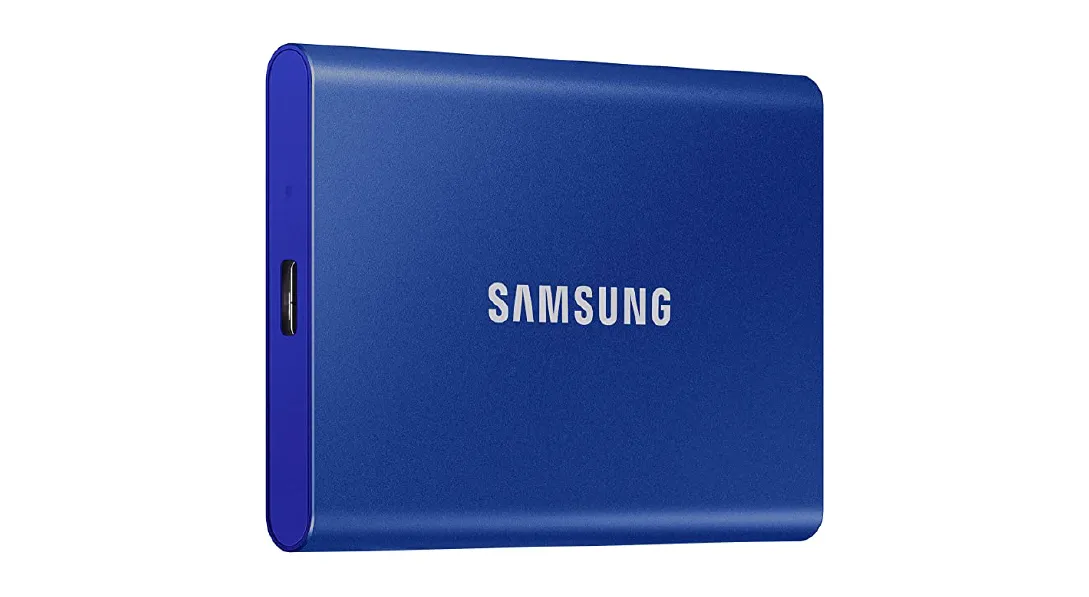
Samsung T7 portable SSD is one of the best external SSDs available out there. It is a small, lightweight and super-fast SSD that is available in different storage capacities starting from 500 GB and goes up to 2TB.
This NVMe SSD offers a maximum read speed of 1050 MB/s and write speed of up to 1000 MB/s. It uses USB 3.2 Gen2 (which is backwards compatible with older versions) for connectivity and supports both standard USB-A and USB-C with included cables.
It has shock resistance, advanced heat control to prevent overheating and its solid aluminium body construction protects it from falls of up to 6 ft.
Moreover, Samsung T7 has multi-device compatibility, so you can connect this SSD with Android devices and gaming consoles.
Features of Samsung T7:
- Available in different storage capacities (500GB, 1TB and 2TB).
- Compatible with USB 3.2 Gen2 and backwards compatible with older versions.
- Read Speed up to 1,050 MB/s and write speed up to 1000 MB/s.
- Multi-device compatibility including Android devices and gaming consoles.
- Small and Lightweight SSD.
- NVMe SSD with UASP support.
2. SanDisk Extreme Portable SSD V2
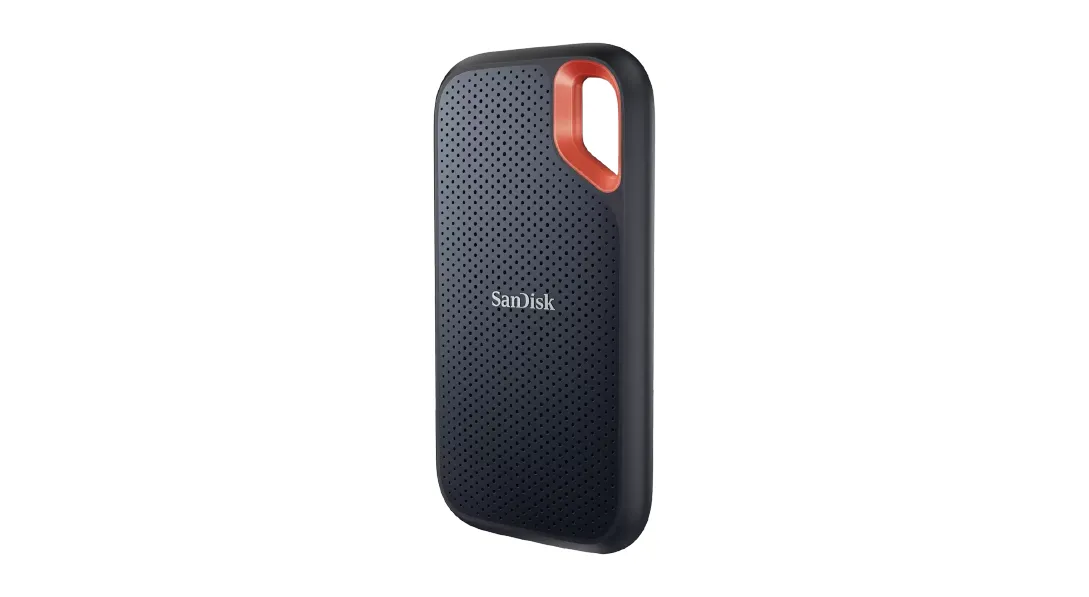
Another great option regarding external SSD for Linux is SanDisk Extreme Portable V2. It is available in different storage capacities (from 500GB to 4TB).
This SSD is portable and rugged by design offering Up to 2-metre drop protection and IP55 water and dust resistance. It even has a built-in carabiner loop for easy transportation.
As for the speed, it offers read speed up to 1050 MB/s and write speed of up to 1000 MB/s that is almost double what the old generation (v1) offered.
Sandisk Extreme SSD V2 uses USB 3.2 Gen2 (backwards compatible with USB 3.0 and 2.0) for connectivity and supports both standard USB-A and USB-C with included cable and USB-A adapter.
If you want a rugged, portable and blazing fast NVMe SSD which offers a wide range of storage capacities, then look no further and give SanDisk Extreme Portable V2 SSD a try.
Features of SanDisk Extreme:
- Available in different storage capacities (500GB, 1TB, 2TB and 4TB).
- Read Speed up to 1,050 MB/s and write speed up to 1000 MB/s.
- Up to 2-meter drop protection and IP55 water and dust resistance.
- Compatible with USB 3.2 Gen 2.
- Portable and rugged NVMe SSD.
3. WD My Passport SSD
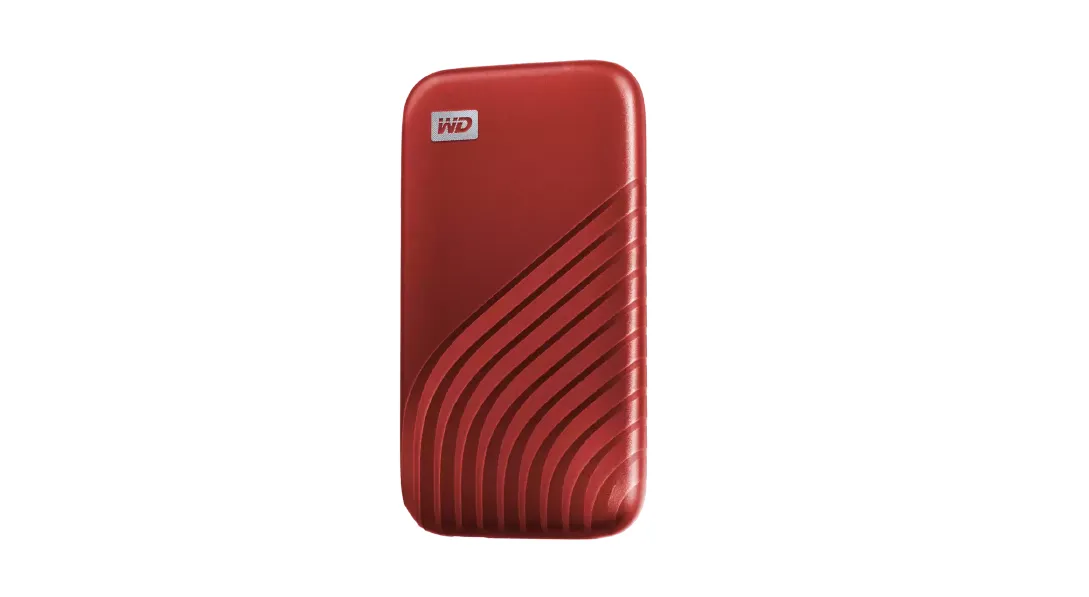
WD is an old and known player in the hard drive market. Their hard drives work on most Linux distros without any hassle. WD My Passport SSD is no different.
WD My Passport SSD is available in a variety of sizes starting from 500GB and goes up to 4TB. It also has a super-fast transfer rate (1050 MB/s read speed and 1000 MB/s write speed).
The outer body of this SSD is shock-resistant and durable enough to handle drop from 6ft height. As for connectivity, WD My Passport uses USB 3.2 Gen2 and supports both USB-A and USB-C with included cables.
WD My Passport SSD is a small, simple and portable NVMe SSD that is available in large storage capacities. If you are looking for these qualities, then this SSD is a great choice.
Features of WD My Passport:
- Available in different storage capacities (500GB, 1TB, 2TB and 4TB).
- Read Speed up to 1,050 MB/s and write speed up to 1000 MB/s.
- Shock/vibration resistant and drop resistant up to 6.5ft (1.98m).
- Compatible with USB 3.2 Gen-2.
- Small and portable NVMe SSD.
4. LaCie Rugged Solid State Drive
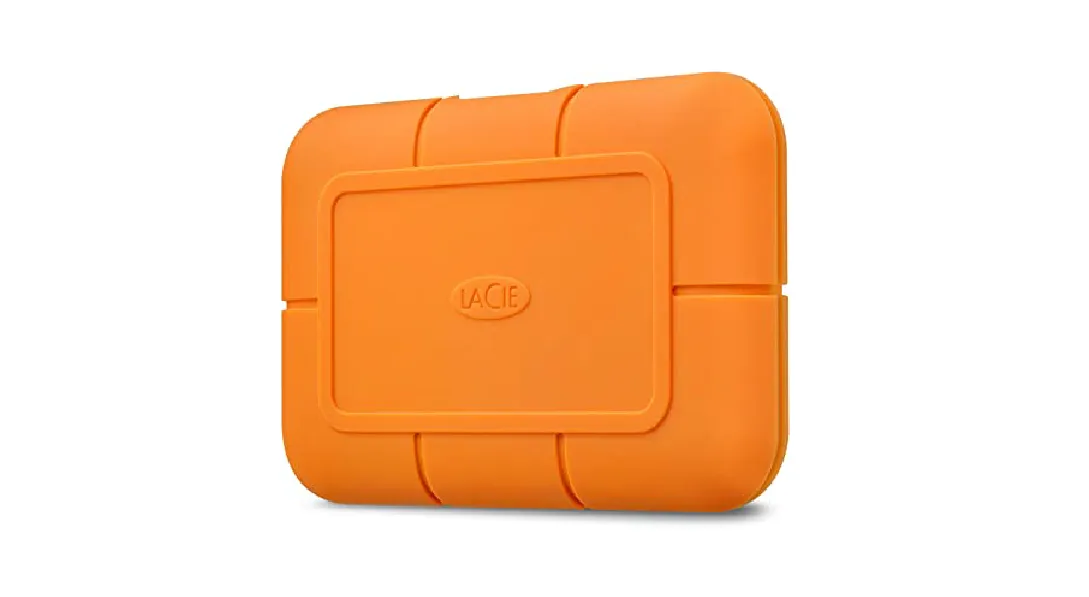
The last on this Best external SSD for Linux list is the LaCie Rugged drive. It is available in different storage capacities that starts from 500GB and goes up to 2 TB.
This is the most rugged SSD on this list. It has all sorts of external protections to keep your data secured. For instance, it has IP67-rated extreme water resistance, drop resistance from up to 3 meters, dust resistance, shock resistance and even a two-ton car crush resistance.
When it comes to the internal features, this drive is an NVMe SSD that has a transfer rate of up to 1050 MB/s. As for connectivity, this SSD embraces a wide array of interface compatibilities that includes Thunderbolt, USB-C and USB 3.0 with the included cables.
This SSD is perfect for people who are always on the move. With this amount of exterior protection, I think this SSD will be suitable even for the clumsiest person on the planet.
Features of LaCie Rugged SSD:
- Available in different storage capacities (500GB, 1TB and 2TB).
- Transfer speed of up to 1050 MB/s.
- Up to 3-meter drop protection, dust resistance, IP67 waterproof rating and two-ton car crush resistance.
- Thunderbolt, USB-C, and USB 3.0 Ready.
- Compact and sturdy NVMe SSD.
Conclusion
This concludes the list of best external SSD for Linux. Although some SSD manufacturers mentioned in this list may not support Linux officially, even so, the SSD works fine with Linux.
However, you may need to disable encryption, disable windows specific software installed on SSD, change some settings in BIOS or format the SSD to a Linux-compatible file system to make it work.
If you like this post, then follow Techsphinx on Facebook and Twitter for more reviews, tricks, tips and tutorials.
This article needs update or correction? Report the issue here so I can update it.
